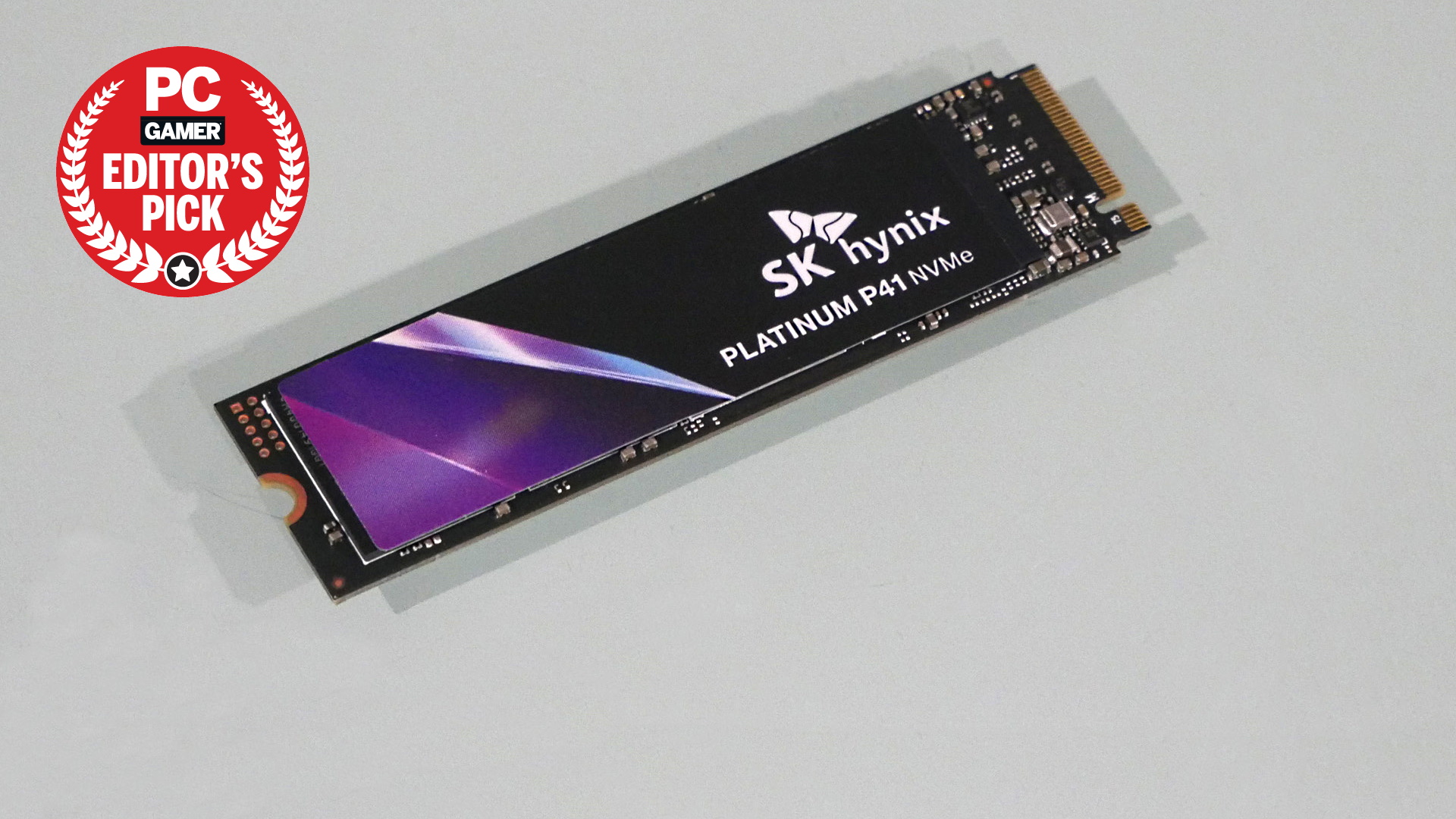Our Verdict
On the eve of a new generation of PCIe Gen 5 SSDs, SK Hynix has rolled out what proves to be one of the very fastest Gen 4 drives yet. There are cheaper options that are only slightly slower, but if you want the very best, this is the drive to beat right now.
For
- Excellent all-round performance
- No major weaknesses
- Competitive on price with direct rivals
Against
- Runs a tiny bit hot
- Unspectacular 4K performance
- Better value is available elsewhere
PC Gamer's got your back
Give it up for the new SK Hynix Platinum P41 2TB. If that doesn't exactly roll off the tongue, it also doesn't help that SK Hynix isn't the most familiar brand when it comes to the sort of consumer-focussed clobber that's aimed at gamers, including SSDs.
Thing is, SK Hynix is actually one of the big beasts when it comes to manufacturing the flash memory chips that go into SSDs. Indeed, it just so happens that SK Hynix just got even bigger courtesy of snapping up Intel's SSD and flash memory operations wholesale. Well, minus the Optane bit, which is entirely toast, more's the pity.
But we digress. SK Hynix, of course, isn't actually new to this space, but the new P41 is arguably the brand's first tilt at a truly high-end M.2 drive. The old SK Hynix Gold P31 was a bit of a clunky old thing, limited as it was to the PCIe 3.0 interface and a controller chip with a mere four memory channels. The new Platinum P41? It's got it all.
Well, it's got it all if the context is PCIe 4.0 drives. The PCIe Gen 5 revolution is just around the corner. But for now, PCIe Gen 4 is not only where it's at. It's probably also the limit of your PC or laptop's capabilities. Anyway, the P41 has SK Hynix's brand new Gen 4 controller, known as Aries. While these things tend to be relatively mysterious black boxes, we do at least know that Aries has a claimed doubling of IOPS performance versus SK Hynix's old Cepheues chip, along with one-third faster IO speeds.
Not only that, it's also a quad-core design that sports eight memory controllers and allocates 2GB of DDR4 cache memory for this 2TB model. All of which makes it on par with top-end controllers like the Phison E18, as seen in various drives including the Seagate FireCuda 530, and the new Pascal chip in the Samsung 990 Pro.
Capacity: 2TB
Form factor: M.2 2280
Controller: SK Hynix Aries
Memory type: 176-layer TLC NAND
Interface: PCIe 4.0 x4
Rated performance: 7,000MB/s read, 6,500MB/s write
DRAM Cache: 2GB DDR4
Random IOPS: 1.4M read, 1.3M write
Write endurance 1,200 TBW
Warranty: 5 years
Price: $260
As for the actual flash memory used, it's SK Hynix's latest and very greatest 176-layer 3D TLC NAND. It's about as advanced as TLC memory currently gets and SK Hynix claims a 40% performance boost over its old 128-layer chips. The net result is sequential read and write specs for this 2TB model of 7,000MB/s and 6,500MB/s respectively. Those numbers are a little lower than the very fastest competing drives by the official specs. But such measures are really only a rough guide, not a precise reflection of real-world performance.
Arguably the P41's performance highlight is the claimed random access performance specs. SK Hynix says the P41 will do 1.4 million read IOPS and 1.3 million write IOPS. That's the fastest read IOPS claim we've seen, although Samsung reckons the 990 Pro is quicker when it comes to writes IOPS.
Finally, on the speeds and feeds, this 2TB drive is rated at 1,200TB for write endurance. As it happens, that's exactly the same as the new Samsung 990 Pro 2TB. But it's also a fair distance short of some other competing M.2 SSDs. For instance, the Seagate FireCuda 530 2TB is rated at 2,550TB, so well over twice as long-lasting. However, that is almost certainly an academic advantage. Pop back here and let us know if you actually get to 1,200TB of writes with any SSD. It would take decades for most users. We're not holding our breath.
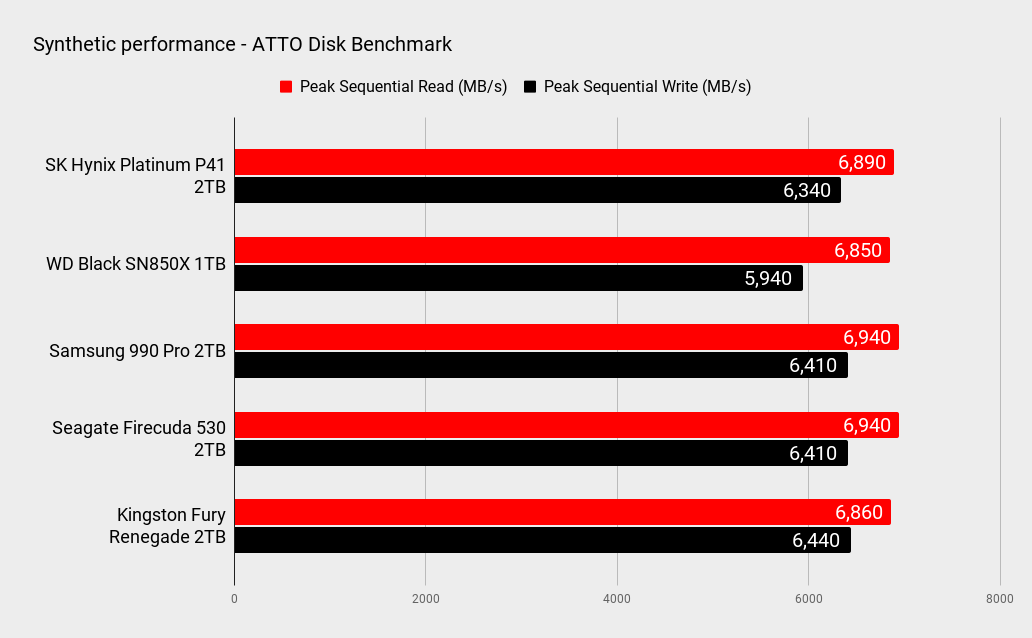
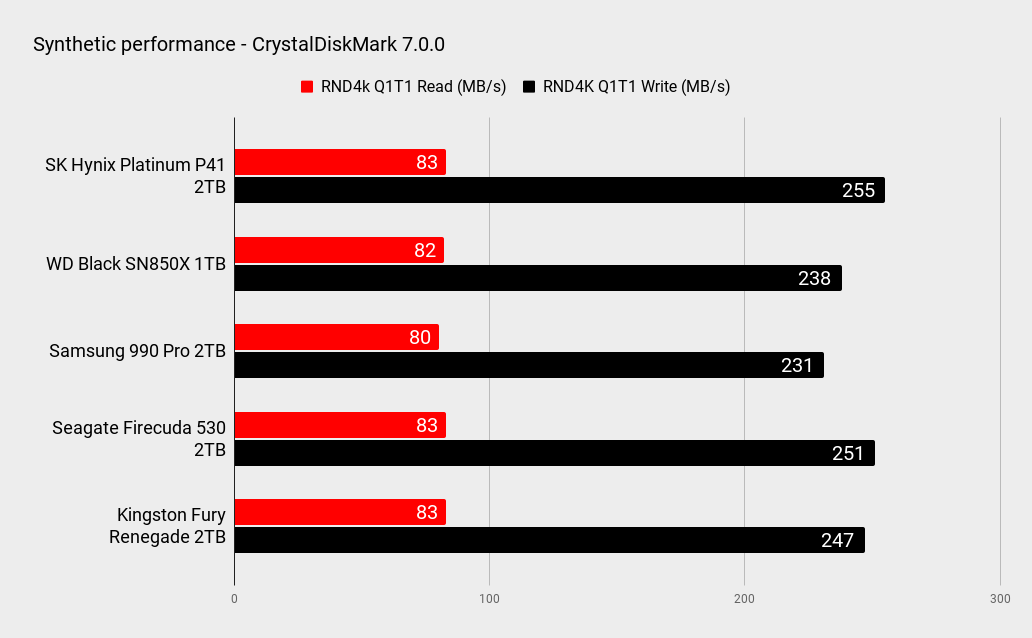
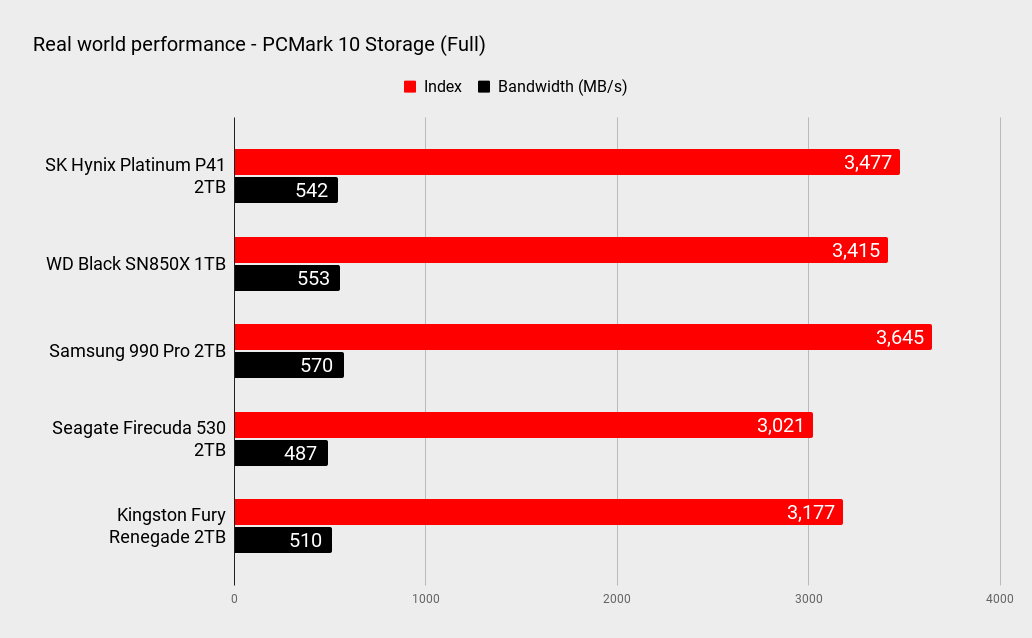
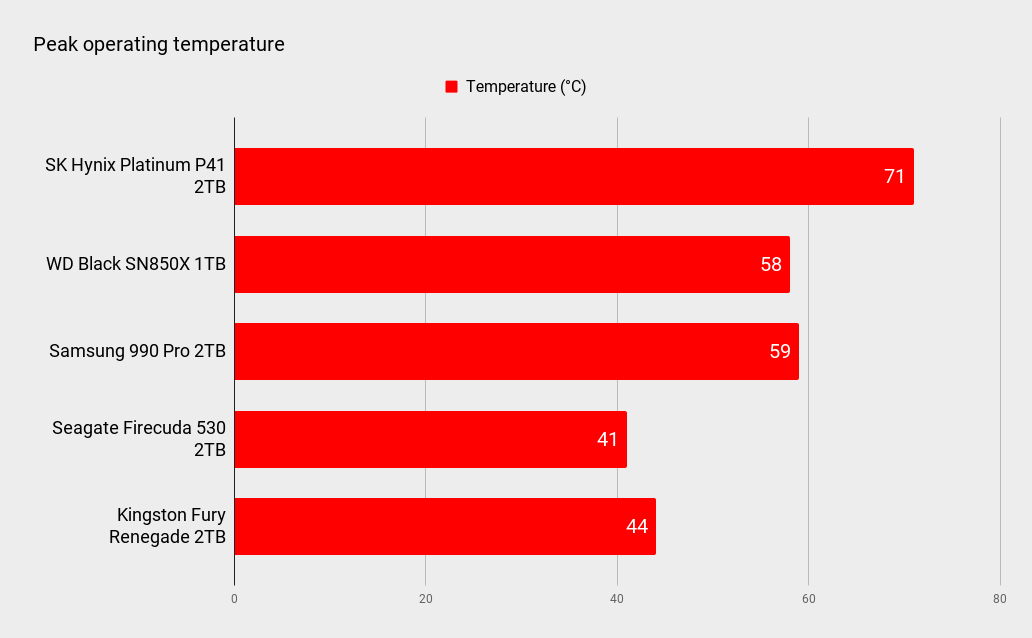

All of which just leaves the minor matter of how this drive actually performs. When it comes to peak sequential throughput, the Platinum P41 is basically as fast as anything else out there, bar a few rounding errors. OK, the Samsung 990 Pro is a bit faster at 7,462MB/s for reads to the P41's 7,375MB/s. But, honestly, it's inconsequential. The same goes for writes, where pretty much all the top drives will do just under 6.9GB/s.
Ultimately, the same applies to 4K random access performance. The P41's 83MB/s reads and 255MB/s writes are very much in the same ballpark as other top drives. In a way, that's a bit disappointing, given random access is the one area where all these drives could do with stepping up. But we're probably going to have to wait for next-gen PCIe 5.0 SSDs to see substantial improvements.
Taking a broader view, the P41 does crank out a very good result in PCMark 10's overall storage benchmark, notching up 3,477 points. That's second only to the new Samsung 990 Pro's impressive 3,645 point tally. It's also very good for latency, pretty much matching the 990 Pro and the similarly quick WD Black SN850X.
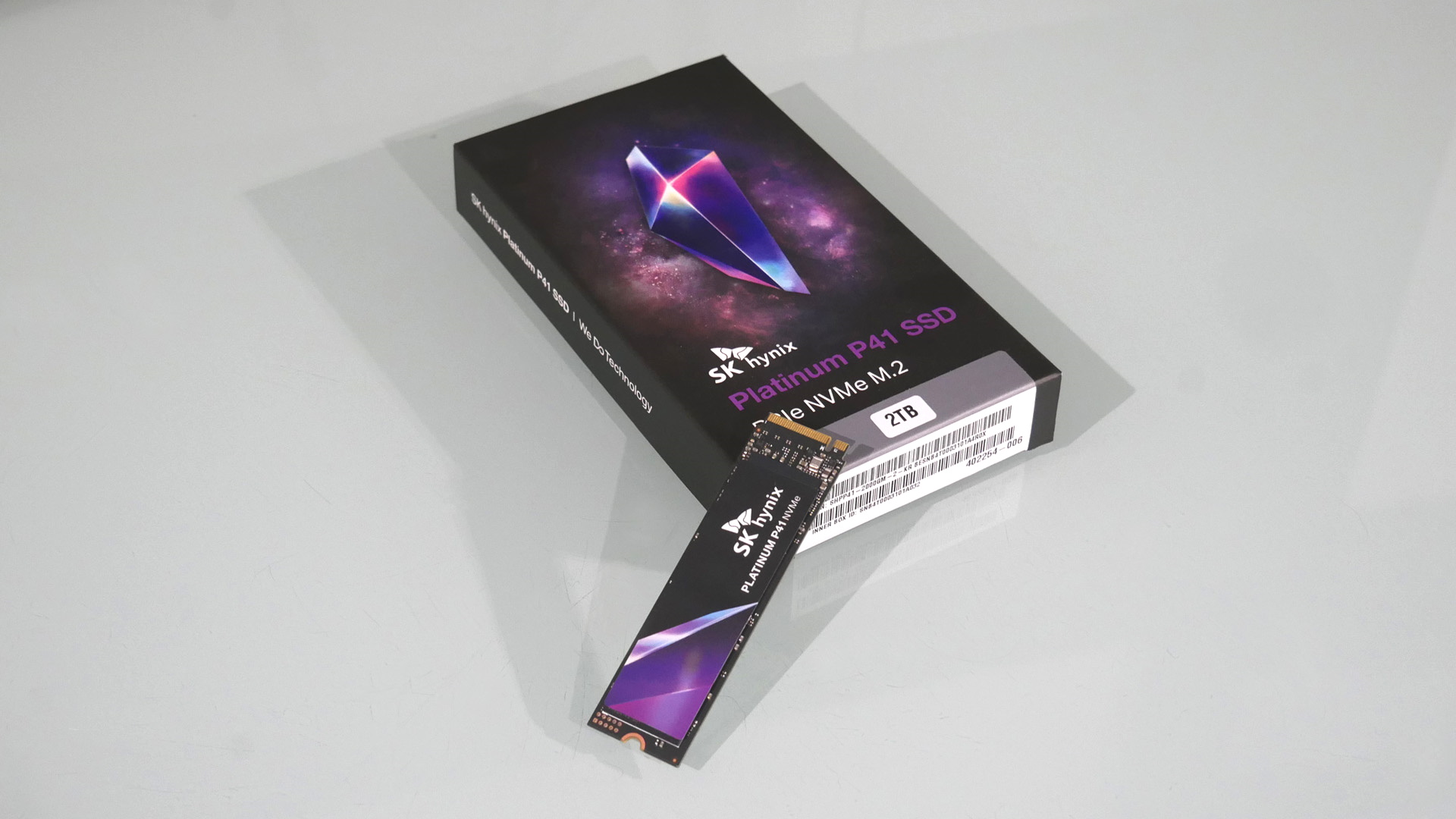
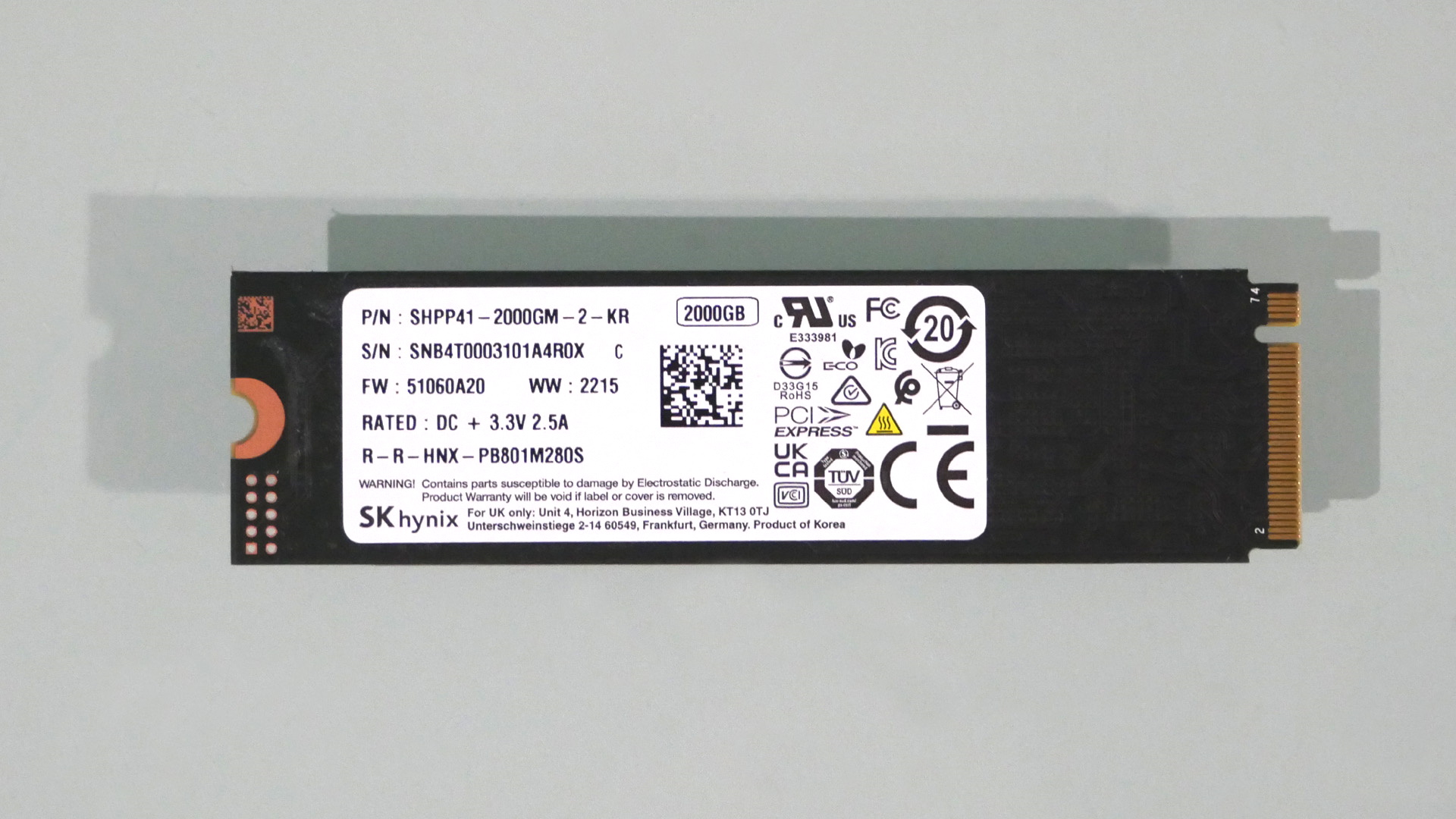
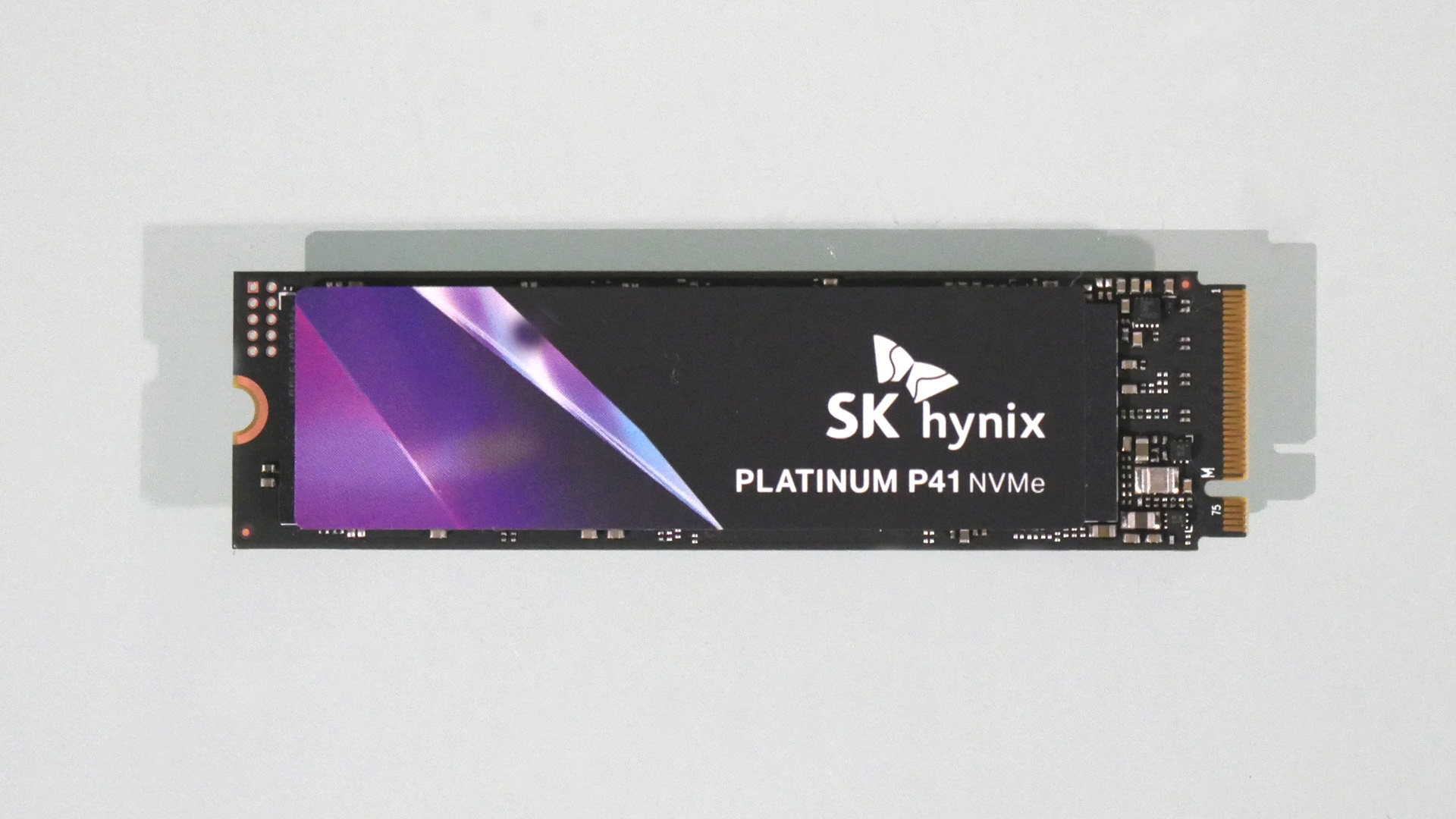
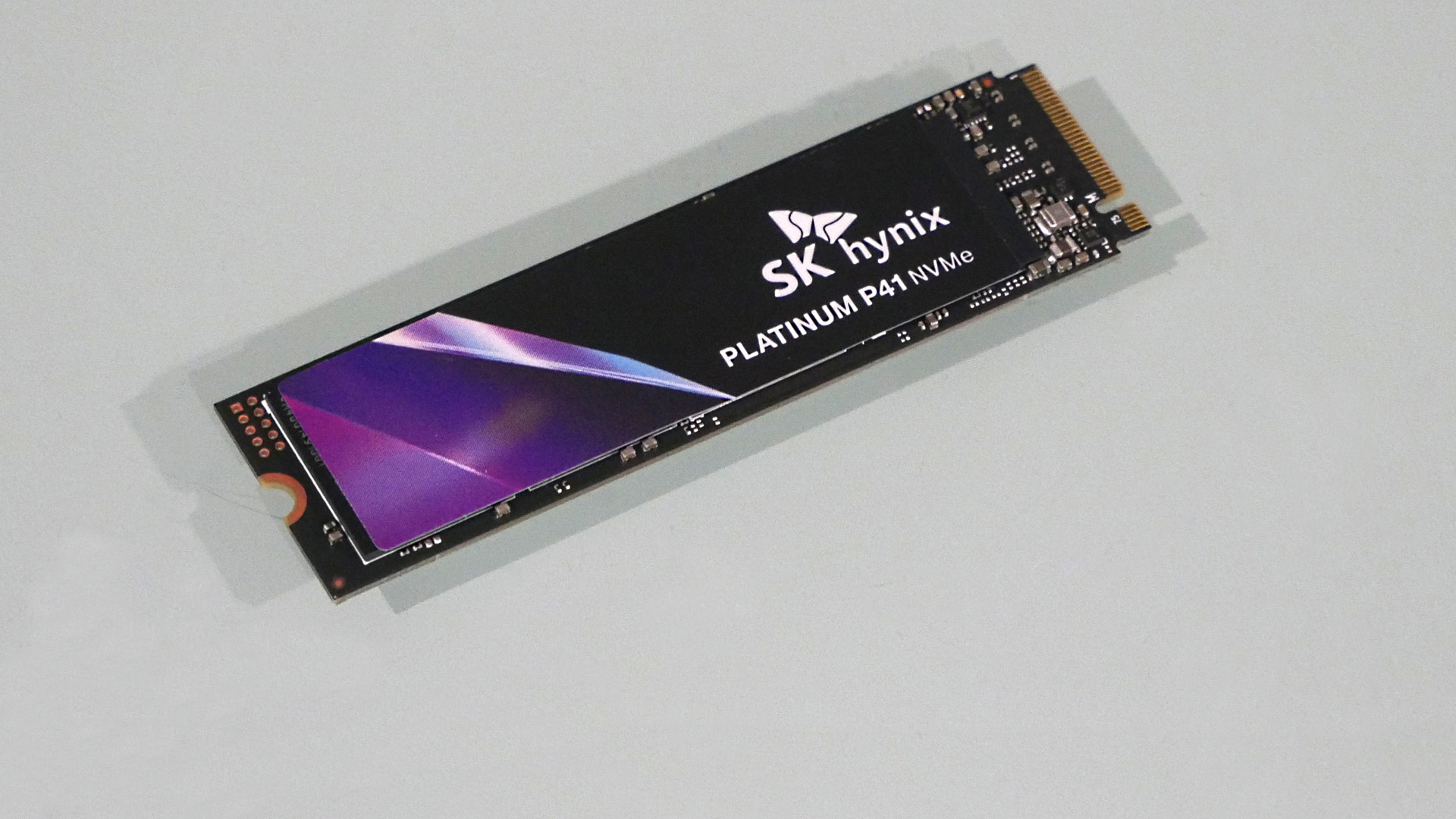
Slightly less edifying are the P41's operating temps. At 71°C peak, it's a little toastier than we'd ideally like. Not that we actually saw any signs of any thermal throttling. But temps that high are a teensy bit of a long-term reliability concern. Speaking of more sustained elements of performance, during our pre-test drive prep routine, we measured the drive's high-performance SLC cache allocation at around 300GB, which is what we'd roughly expect from a 2TB premium SSD.
So, this is a damn fine drive. It's at least as good as pretty much anything else out there, trading blows with WD's new Black SN850X, Samsung's upgraded 990 Pro and the usual Phison E18-powered suspects. If you want a top-end PCIe 4.0 drive, there's certainly plenty of choice. And the SK Hynix Platinum P41 2TB should certainly be on your shortlist.
On the eve of a new generation of PCIe Gen 5 SSDs, SK Hynix has rolled out what proves to be one of the very fastest Gen 4 drives yet. There are cheaper options that are only slightly slower, but if you want the very best, this is the drive to beat right now.

Jeremy has been writing about technology and PCs since the 90nm Netburst era (Google it!) and enjoys nothing more than a serious dissertation on the finer points of monitor input lag and overshoot followed by a forensic examination of advanced lithography. Or maybe he just likes machines that go “ping!” He also has a thing for tennis and cars.
